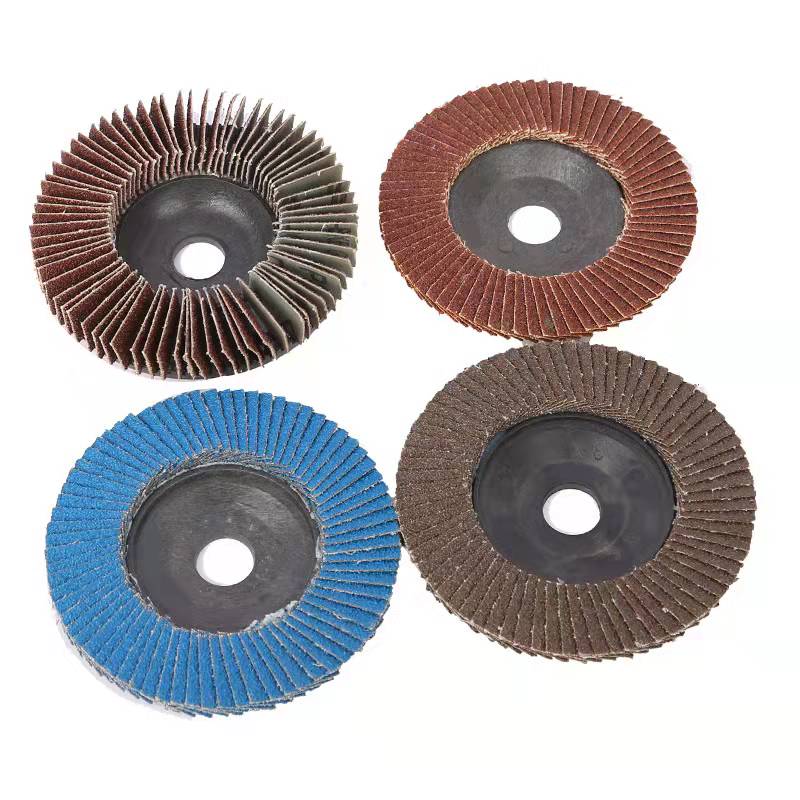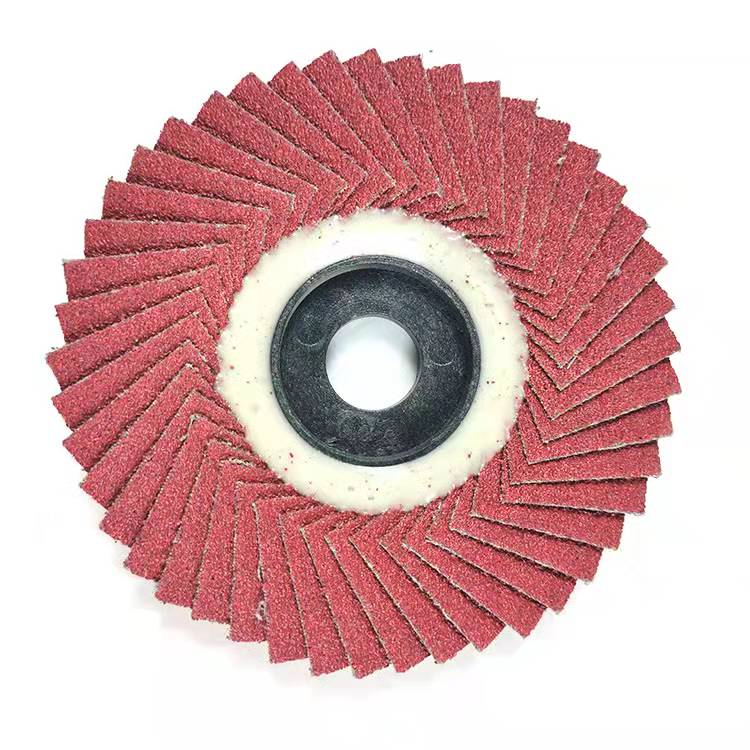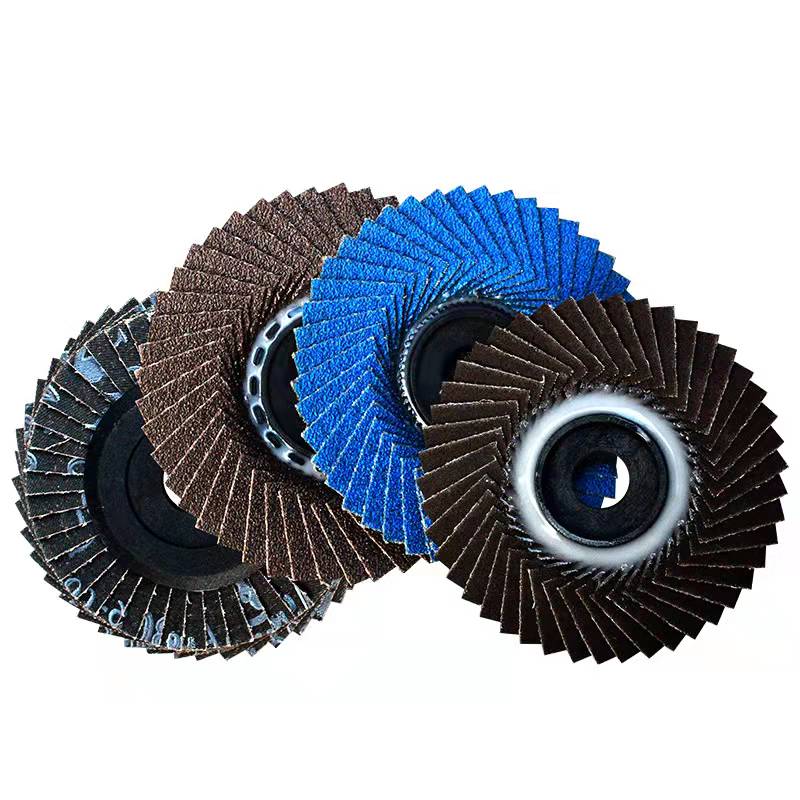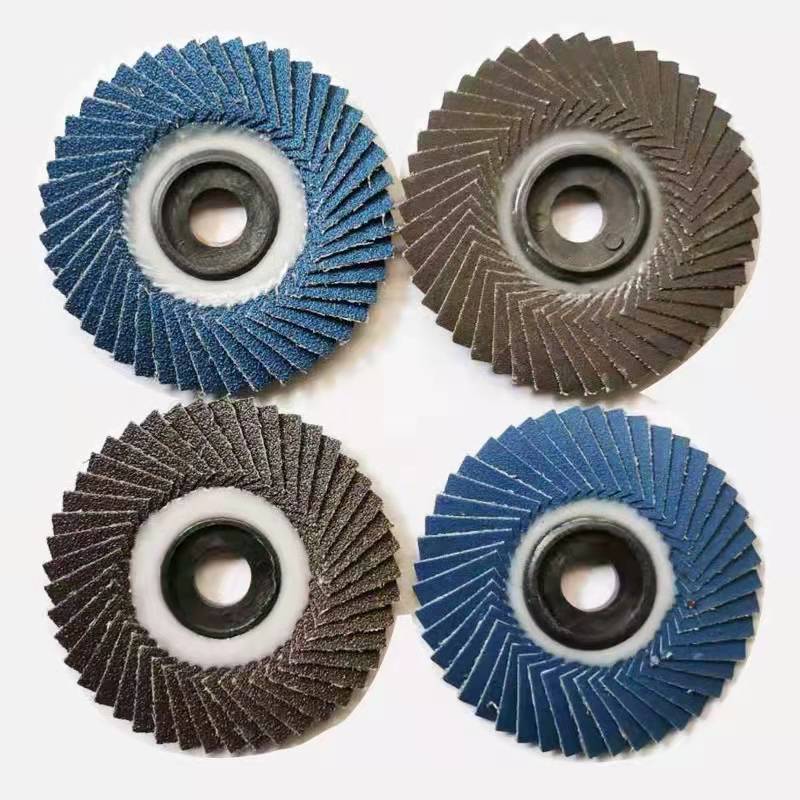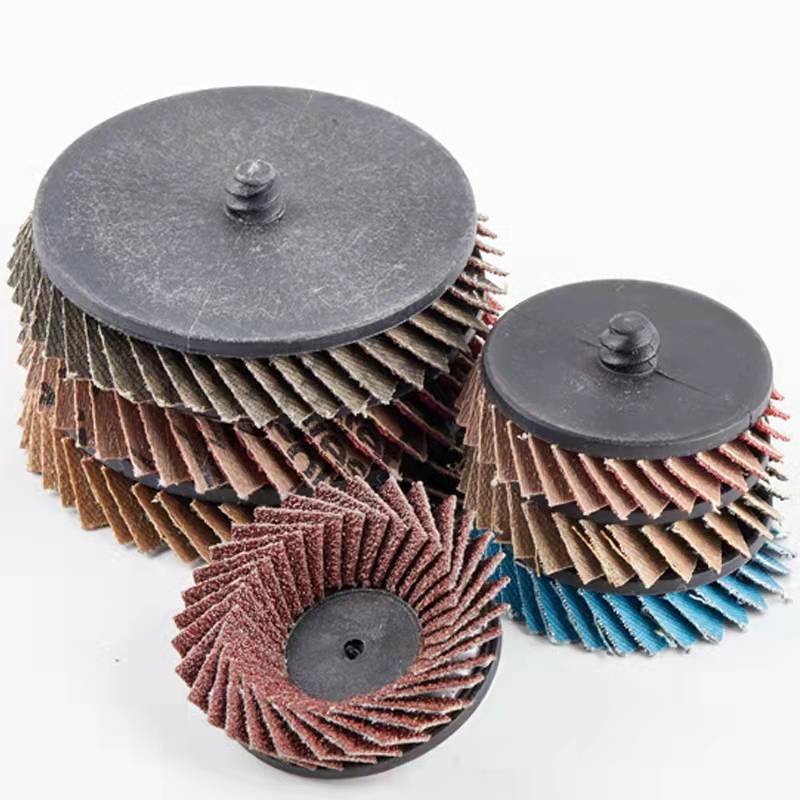On how to properly install rock wool insulation board
Abrasive flap discs, commonly
known as flat emery cloth wheels, flap discs, flower impellers or elastic
discs, are a large variety of coated abrasive conversion products. It is a
method of pressing the cut coated abrasive discs one by one. It is formed by sticking
adhesive to the back cover plate along the circumference.
The Flap Disc is mainly
installed on hand-held Power Tools for grinding and polishing the welds, burrs,
chamfers, surface derusting, surface polishing, etc. of various metal and
non-metal parts. Compared with the resin grinding wheel for fixed abrasives, it
has Grinding and polishing can be completed at one time, shortening the
operation time, saving the cost of grinding, and improving the grinding
efficiency. The abrasive self-sharpness is strong and the utilization rate is
high. The air cooling does not damage the surface. The surface quality is easy
to control and cost-effective, reducing operator fatigue and increasing machine
life. And so on, so it is widely used in various industries or fields of
manufacturing.
The related abrasive products we can supply is Flap Disc Adhesive , Flap Wheels , Bonded Abrasives , and Abrasive Sanding Disc, such as Abrasive Fiber Disc, Sanding Screen Disc, abrasive silicon sandpaper, if you have any needs about abrasive tools, please kindly feel free to contact us.
Abrasive flap disc can be
divided into flap disc, Mini Flap Disc and Flexible Flap Disc according to
their shape. There are subtle differences in usage. The flap disc are
relatively hard and not easy to bend; the blades of flexible flap disc can be
bent at will. Shape, suitable for grinding the edges and corners of the
workpiece; mini flap disc is suitable for grinding smaller workpieces. The
following is a detailed introduction of the flap disc.
According to the
different abrasives, it can be divided into Zirconia Flap Disc,S/C Flap Disc, Ceramic
Flap Disc.
1.Zirconia Flap Disc
Mainly used for high alloy, stainless steel
and heat-treated steel; high-tensile, non ferrous metals.
2.S/C Flap Disc
Mainly used
for marble, stone, glass, and non-ferrous metals.
3.Ceramic Flap Disc
Mainly used for
grinding stainless steel, titanium, inconel, and other hard metals.
At present, flap discs are widely used in automobiles, stainless steel products, metal products, glass manufacturing and other industries, and have special effects on welds, solder joints, flash, rust removal and surface polishing. The reason why the flap disc is so widely used is because it has five advantages that cannot be ignored:
1. The flap disc blades have high hardness, high strength and strong grinding ability during use.
2. The flap disc has low noise, low vibration and long service life during use.
3. The flap disc has strong wear resistance and long service life.
4. It is not easy to generate heat and burn parts during use.
5. The use of flap disc can improve work efficiency.
The flap disc blades can be used instead of resin Grinding Wheels and steel wire wheels. They have a good effect on rust removal, grinding and polishing. It is a good way to polish and remove rust. It is worth choosing!
Abrasive Flap Disc,Abrasive Disc,Toolstation Flap Disc,Silicon Carbide Flap Disc Zhengzhou Jiading Abrasive Manufacturing Co.,Ltd , https://www.jd-abrasives.com
1. Install rock wool insulation board 1) The standard board size is 300*300, and the diagonal error is less than 3mm. If you need to cut, you can use a small cutting saw to cut, and the allowable deviation of the insulation board size is ±2.
2), mesh cloth overturned: door and window openings, deformation joints, etc., at both sides of the sticky grid cloth, the total width of about 200, turn over part of the width of 80, the specific approach is as follows: grid cloth cutting length of 180 plus plate thickness. First, apply a special adhesive with a width of 80 to 2 in the turn-up area, then press in an 80-long mesh cloth, and throw away the rest.
3)ã€Apply the configured special adhesive on the back of the rock wool insulation board. The thickness of the adhesive is about 3, in order to ensure firm bonding, it is best to use the full-dense method, and also to stick the method and Point method.
4) Sticking method: Apply a special adhesive horizontally to the composite foamed cement board with a tooth guillotine knife. The width of the strip is 10, the thickness is 10, and the middle distance is 50.
5). The method of strip point: apply a special adhesive on the periphery and the middle of each plate with a trowel, and then apply a ash cake with a diameter of 50 and a thickness of 10 in the separation area of ​​the composite foamed cement board.
6) The rock wool insulation board that has been coated with a special binder is quickly affixed to the wall to prevent surface crusting and loss of adhesion.
7) After rock wool insulation board is glued to the wall, use a 2m taper flattening operation to ensure its flatness and firm bonding, and the board should be tightly packed with the board, no seams are allowed, and the gap formed due to cutting is not straight. Adhesive insert and smooth. After each plate is glued, the special adhesive on the extrusion surface should be removed.
8) Rock wool insulation boards shall be pasted from bottom to top horizontally and horizontally. Each row of boards shall be staggered by 1/2 board length, and the local minimum staggered seam shall not be less than 100.
2, installation of fixed parts:
1) The fasteners are installed 8 hours after the rock wool insulation board is affixed, and are completed within the next 24 hours. Drill with impact drill according to the design requirements, with an aperture of 10, drill into the base wall with a depth of about 60, and the depth of the fasteners anchoring into the base wall is about 50 to ensure firm and reliable.
2) The number of fasteners is set on each board.
3) Self-tapping screws shall be tightly tightened and the surface of engineering plastic expansion screw caps and rock wool insulation boards shall be neat or slightly screwed in to ensure that the tails of the expansion nails are tightened back to fully anchor the base wall.
3, installation of fixed parts:
1) The fasteners are installed 8 hours after the rock wool insulation board is affixed, and are completed within the next 24 hours. Drill with impact drill according to the design requirements, with an aperture of 10, drill into the base wall with a depth of about 60, and the depth of the fasteners anchoring into the base wall is about 50 to ensure firm and reliable.
2) The number of fasteners is set on each board.
3) Self-tapping screws shall be tightly tightened and the surface of engineering plastic expansion screw caps and rock wool insulation boards shall be neat or slightly screwed in to ensure that the tails of the expansion nails are tightened back to fully anchor the base wall.
4, for decorative line angle : 1) according to design requirements with the ink line pop-up need to do the position of the line angle, and horizontal and vertical direction correction.
2) The groove angle is used to cut the plate into notches using a slotter. The thinnest point of the notch is not less than 15.
3) After the convex line angle is cut according to the design size, the interface agent on the two sides of the online angle and the corresponding plate shall be coated with a special adhesive to make it stick firmly.
5, wipe the underlying polymer mortar:
1) The configuration of the polymer mortar is the same as the special adhesive.
2), spread the configured polymer mortar evenly on the board, the thickness is 26, press into the grid cloth:
1) The grid cloth should be cut according to the length and width of the work surface, and the lap width should be left. The grid cloth should be cut along the latitude and longitude.
2) In doors and windows, etc. 